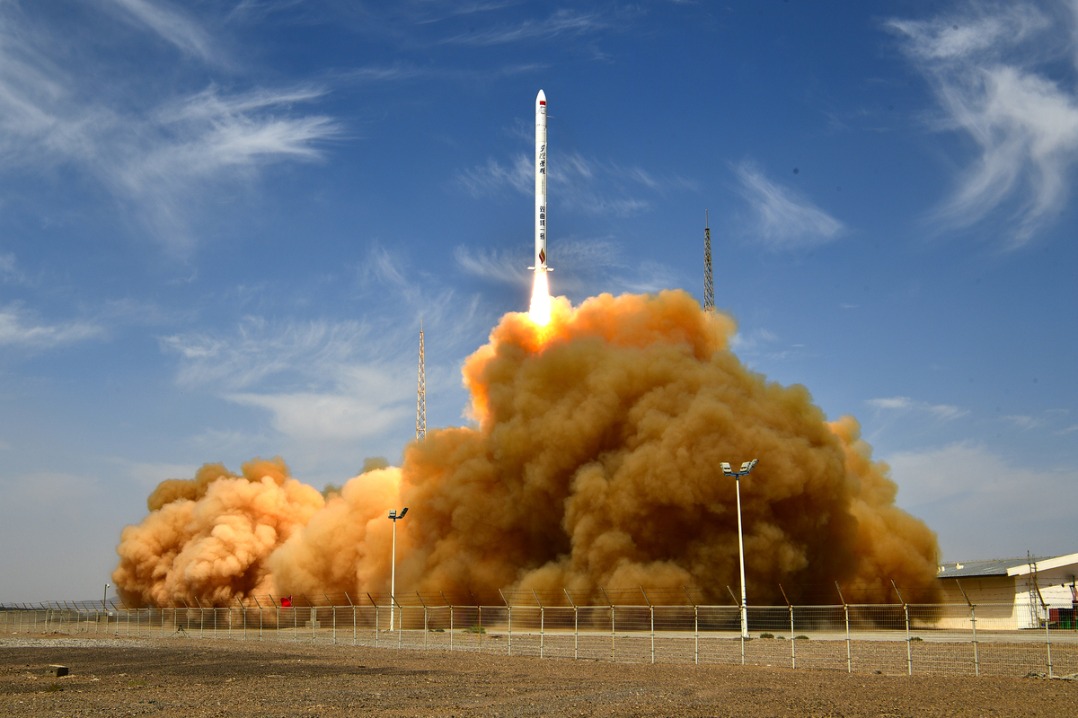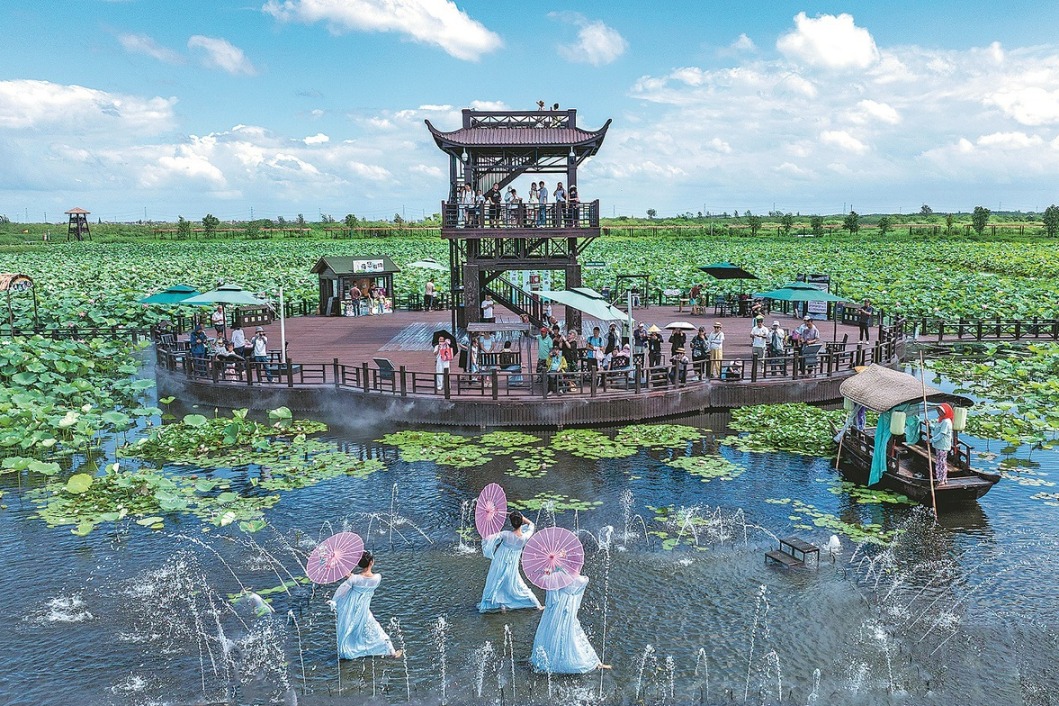Blue sky thinking
Rescue worker draws from his experiences in a bid to further the development of the emergency response field, report Wang Ru in Beijing and Ma Jingna in Lanzhou.

Yu Ruofei, 32, still remembers that, not long after he helped to establish the Lanzhou Blue Sky Rescue in 2013, the team received its first mission-to save a drowning child in Lintao county, about 80 kilometers from Lanzhou city, Gansu province. Unfortunately, by the time he arrived, the body of the child had already been dragged out of the water.
"We had only just formed the team, and didn't have the ability or equipment to retrieve the child. I didn't say anything on my way back to Lanzhou. However, I swore in my heart that I would try my best to make enough money to buy equipment and learn the necessary skills, so that, if I were to meet a similar situation again, I would be able to help," he adds.
That experience left a deep impression on the young man, and made him more resolute to follow his chosen path of working as a rescuer. Over the course of nearly a decade, he has organized the first professional rescue team in Gansu, embarked on more than 390 rescue missions to the sites of natural disasters, ranging from devastating earthquakes to torrential floods, saved 79 people and recovered the bodies of 366.
Yu's story started in 2012 following a flood and mudslide in his hometown in Minxian county, Gansu. Feeling anxious about the situation, Yu, who was an undergraduate student at Xi'an International University, asked for leave from school and returned home to work as a volunteer in the rescue team.
Upon returning to university, he joined Blue Sky Rescue in Shaanxi. "For me, at the very beginning, I was immature. Joining the team was about wearing the uniform and looking like a hero," says Yu.
In 2013, when an earthquake occurred in Ya'an city, Sichuan province, Yu responded with the BSR team. When he was resting on the steps in front of a local cinema, a director from Hunan Broadcasting System talked to him, and asked what he thought was the best form of rescue, to which Yu replied, "earning money to buy equipment and learning the techniques to save people as soon as possible". The director disagreed, saying: "I believe it is to impart rescue knowledge to others. When everyone knows how to protect and save themselves, they may no longer need others to come to their aid."
That conversation urged Yu to form his own rescue team at university, spreading information and teaching safety techniques through lectures and drills. At first, it was only university students who attended. Then, he organized training sessions in communities and rural areas. Over the years, he has given more than 700 lectures and rescue drills.
Also that year, after considering that there were no professional rescue teams in Gansu, he took it upon himself to establish one in Lanzhou, the provincial capital, with two other people. By 2015, the team evolved into Gansu BSR.
After his graduation, he didn't choose to go to more developed cities for better chances of work, but instead stayed in Lanzhou as a rescuer. "I read a book co-authored by late Harvard Business School teacher Clayton M.Christensen, titled How Will You Measure Your Life, in which he says, 'the only metrics that will truly matter to my life are the individuals whom I have been able to help, one by one, to become better people'. It inspired me and convinced me of the value of my work," says Yu.
During a rescue effort at the scene of an earthquake in 2013, a drone recording vital information of the affected area suddenly dropped out of the sky, landing on a cliff more than 40 meters high. To get it back, Yu had to cross a 10-meter-wide river and then climb the mountain.
As he reached the 10-meter mark of the climb, an aftershock hit. He paused and waited patiently for it to end, before continuing his ascent. Another aftershock occurred as Yu approached a height of 30 meters. "Many stones, similar to the size of eggs, rained down, hitting my helmet. At the time, I thought I was done for, and I was preparing for the worst," says Yu. After "a very long" five minutes, the aftershock subsided and he was able to finish the climb. After more than an hour, he finally reached and recovered the drone.
When asked if he has ever felt afraid in the course of his work, Yu says: "It would be a lie if I say that I have not, especially when I had just started the job, but I believe nothing is as important as saving lives. The urge to protect life is always stronger than fear."
Li Yun, a colleague of Yu, told China Media Group: "He is always tough in the face of a disaster. He is devoted to rescuing people, despite all the hardships he has endured. That makes me respect him very much."
Yu has also joined international rescue teams and was drafted in to help in the aftermath of a massive, devastating earthquake that hit Nepal in 2015. He was at the scene of a destructive flood in Myanmar that same year.
Yu believes that there are four stages to establishing an effective public welfare cause: Helping others directly, influencing more people to join, integrating resources and leading the development of the industry.
"The public welfare we usually see is still in the primitive stage, which is people helping others with good intentions. That is easy to accomplish, but, if you want to build an effective system, to establish an organization, that is another issue," says Yu.
"Saving lives is just the foundation. You also need to urge more people to learn about disaster awareness and mitigation, and then encourage them to participate in the process of rescuing and helping others. After that, you need to integrate the required resources effectively, and in this way, you can further the development of the emergency rescue field. That is what I want to achieve," he adds.


Today's Top News
- China and US agree to extend tariff rates after two-day talks in Stockholm
- US, China trade talks candid, in-depth, constructive, says China intl trade representative
- China unveils delegation for Chengdu World Games
- Xi urges youths to champion vision of peace
- All-out relief efforts underway in flood-hit regions
- Crucial to foster stable China-ROK ties: China Daily editorial






























